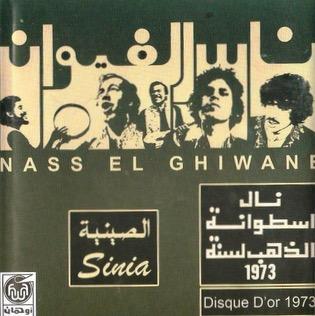Event
The “Tea Tray:” Nass el Ghiwane, Popular Music, and the Sound of Protest in Morocco (1970s-1990s)
Colloquium Lecture by Alessandra Ciucci
Alessandra Ciucci
The “Tea Tray:” Nass el Ghiwane, Popular Music, and the Sound of Protest in Morocco (1970s-1990s)
November 28, 2023 (Tuesday) — 5:15 pm to 7:00 pm
Lerner Center
Penn Music Building
201 S. 34th Street, Room 101
ABSTRACT
In my current project tentatively titled “Nass el Ghiwane: Popular Music and the Sound of Protest in Morocco (1970s-1900s), I posit that in order to understand the effectiveness of the songs of Nass el Ghiwane it is critical to examine their musicopoetic assemblage with its rich web of citations and intertextual references, and to acknowledge the force of the band’s sound that Moroccans heard as “revolutionary” (thəuri) and with a “protest tone” (nəbra ḥtjajiya). I consider their songs as historical and emotional repositories of an era of profound transformation, as songs bearing witness to an era so marked by political violence and oppression that it came to be referred to as the “Years of Lead” and, at the same time, giving voice to collective hopes, dreams and aspirations. I am interested in the possibility that these songs offered in envisioning a different future in an oppressive reality and, just as importantly, the reasons for the musicians to choose the tools they used to capture the ears of a young generation.
Disguised as a conversation between a man and his tea tray, “ṣ-Ṣiniya,” uses an important symbol of Moroccan identity and the ritual of the tea, to offer a stirring social commentary about the people who have disappeared. Adapted from traditional verses sung by a man begging for alms in the working-class neighborhood in Casablanca where the members of the group were raised, “ṣ-Ṣiniya,” celebrates the vernacular and the vocality of street cries in its reworking into a song with an important socio-political critique. I ask: what is the role of the sounds of the working-class neighborhood in question in the compositional process of Nass el Ghiwane? How does “ṣ-Ṣiniya” embody people’s experiences and everyday lives in an oppressive political climate? And, in this context, how are local categories of the folk and the popular acoustically assembled in forging a sound of protest?
BIO
Alessandra Ciucci received her PhD in music (ethnomusicology) from The City University of New York at The Graduate Center. Her research interests include: the music of Morocco, the Maghreb, the Mediterranean, gender and sexuality, sung poetry, popular music of the Arab world, and music and migration. Her first book, The Voice of the Rural: Music, Poetry, and Masculinity among Migrant Moroccan Men in Umbria (University of Chicago Press, 2022), explores the significance and the endurance of a specific notion of the rural (l-‘arubiya) among migrant Moroccan men in Italy.
She is currently at work on a new project tentatively titled, Nass el Ghiwane: Popular Music and the Sound of Protest in Morocco (1970s-1990s), in which she delves into Nass el Ghiwane, the most influential popular music group in Morocco during an era marked by political violence and oppression. Ciucci argues that the group was able to forge a new musicopoetic language utilizing traditional Moroccan culture as a method of decolonization that also provided a sense of contemporary authenticity. Ciucci is the recipient of a number of grants and prizes, among which the Rome Prize in Modern Italian Studies (2018-19).
ATTENDANCE & REGISTRATION
This event is free and open to the public. If you attend in person, there is no need to register. We ask that you join us in person if at all possible, but for those of you who are unable to physically attend we encourage you to participate via Zoom. Please return in this fall for a registration link to attend virtually.
ABOUT
This lecture is part of the 2023-24 Penn Music Colloquium Series. The Department of Music's main Colloquium Series showcases new research by leading scholars in music and sound studies and composers both in the United States and internationally. All Music Colloquia will take place in Room 101 of the Lerner Center on Tuesdays at 5:15 PM.
